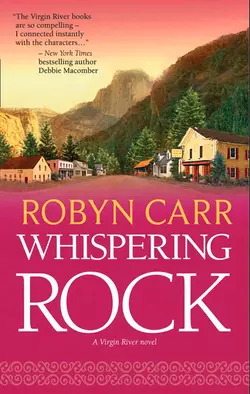Whispering Rock

Робин Карр
Тип: электронная книга
Жанр: Современные любовные романы
Язык: на английском языке
Стоимость: 229.69 ₽
Статус: В продаже
Издательство: HarperCollins
Дата публикации: 16.04.2024
Отзывы: Пока нет Добавить отзыв
О книге: The Virgin River seriesWhispering Rock – Book 3A decorated U.S. Marine reservist, LAPD officer Mike Valenzuela was badly wounded in the line of duty, but has found hope and healing in Virgin River.When he agrees to become the town′s first cop, he does so knowing it′s time he settled down. Twice divorced and the lover of too many women, he secretly longs for the kind of commitment and happiness his marine buddies have found–a woman who can tie up his heart forever. He finds that woman in Brie Sheridan, a Sacramento prosecutor who understands his drive to protect and serve. Virgin River becomes a safe haven for Brie after nearly losing her life at the hands of a crazed criminal. Though tough and courageous, she′s got some fears she can′t escape–but now she has someone who will show her just what it means to trust again. Mike will do anything to help Brie free herself from painful memories.Passionate, strong and gentle, he vows to give back to her what she′s so selflessly given him–her heart, and with it, a new beginning.Praise for Robyn Carr ‘A touch of danger and suspense make the latest in Carr′s Thunder Point series a powerful read.’ –RT Book Reviews on The Hero‘With her trademark mixture of humor, realistic conflict, and razor-sharp insights, Carr brings Thunder Point to vivid life.’ –Library Journal on The Newcomer‘No one can do small-town life like Carr.′ –RT Book Reviews on The Wanderer‘Strong conflict, humor and well-written characters are Carr′s calling cards, and they′re all present here… You won′t want to put this one down.’ –RT Book Reviews on Angel′s Peak‘This story has everything: a courageous, outspoken heroine, a to-die-for hero and a plot that will touch readers′ hearts on several different levels. Truly excellent.’ –RT Book Reviews on Forbidden Falls‘An intensely satisfying read. By turns humorous and gut-wrenchingly emotional, it won′t soon be forgotten.’ –RT Book Reviews on Paradise Valley‘Carr has hit her stride with this captivating series.’ –Library Journal on the Virgin River series‘The Virgin River books are so compelling – I connected instantly with the characters and just wanted more and more and more.’ –#1 New York Times bestselling author Debbie Macomber